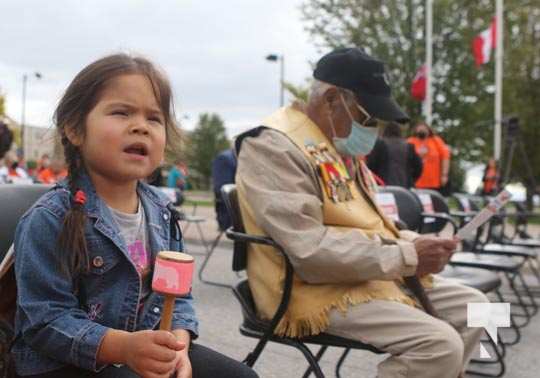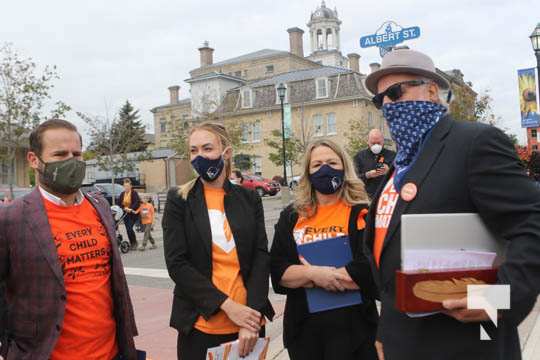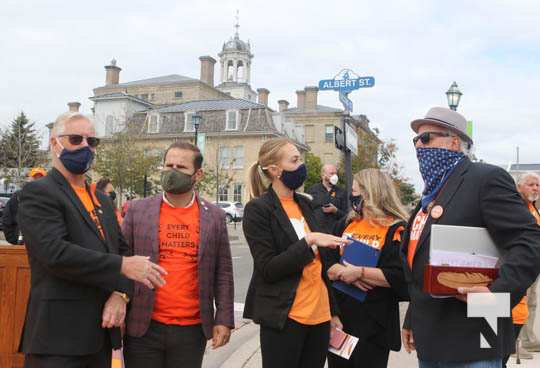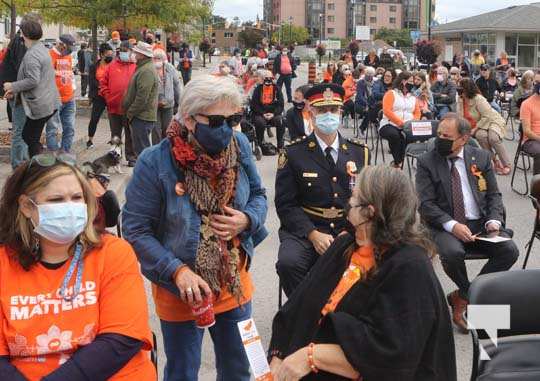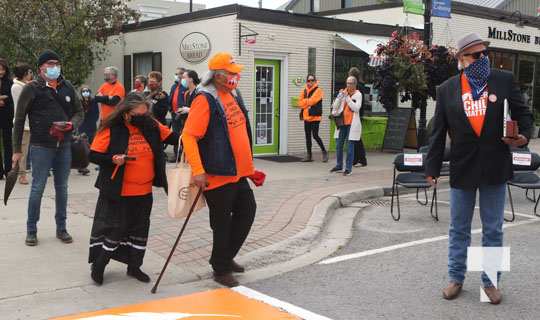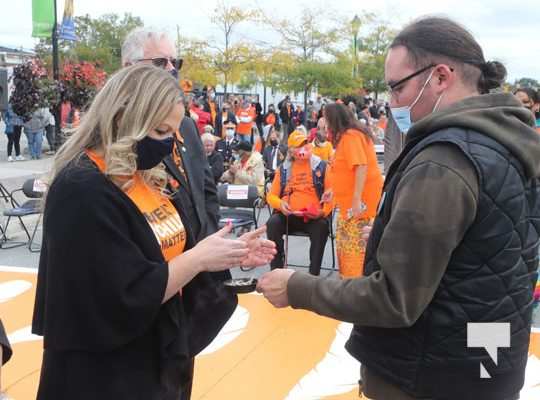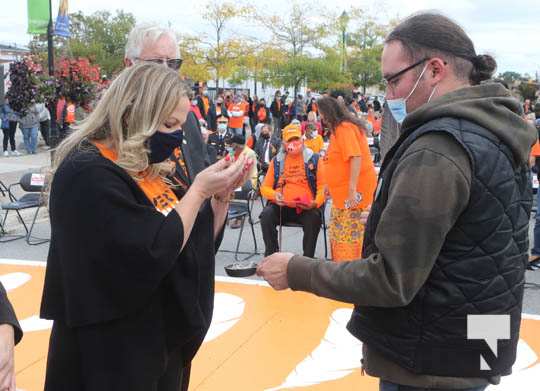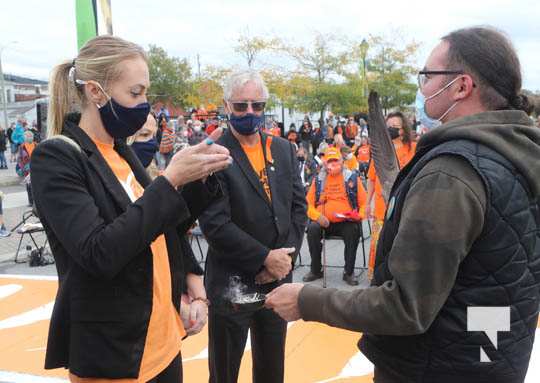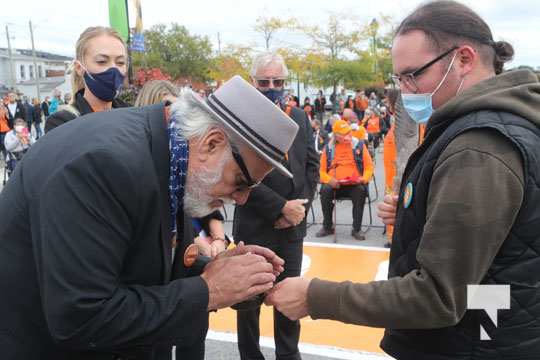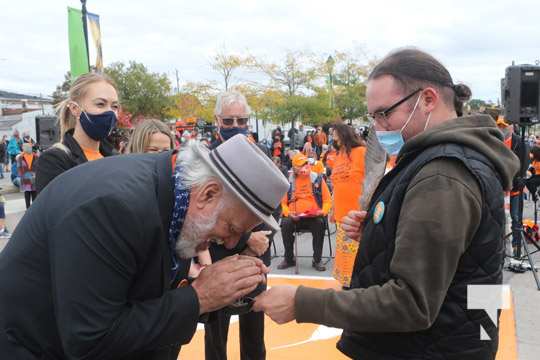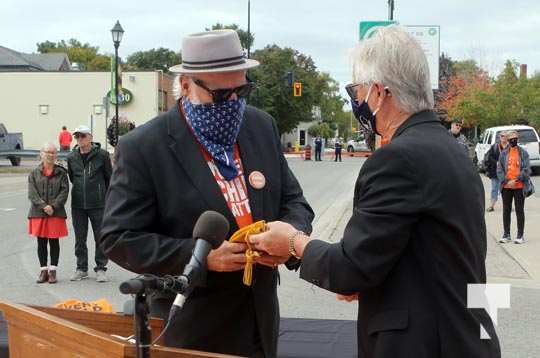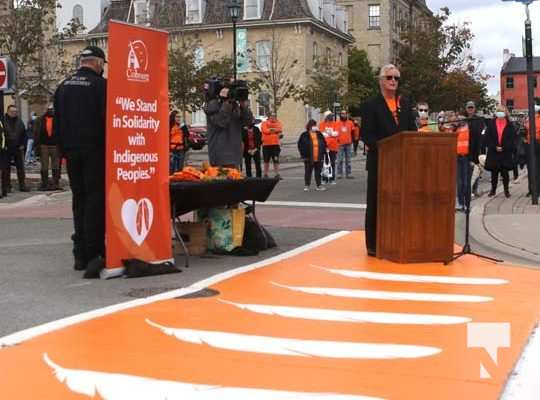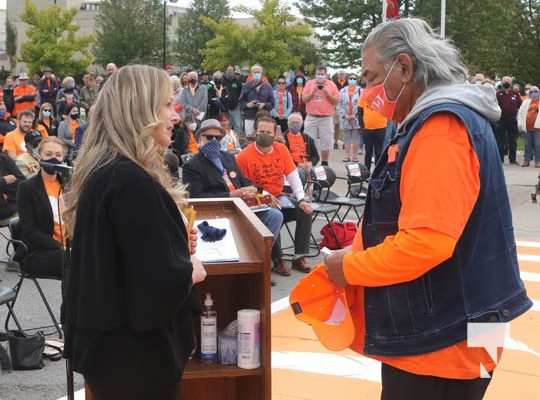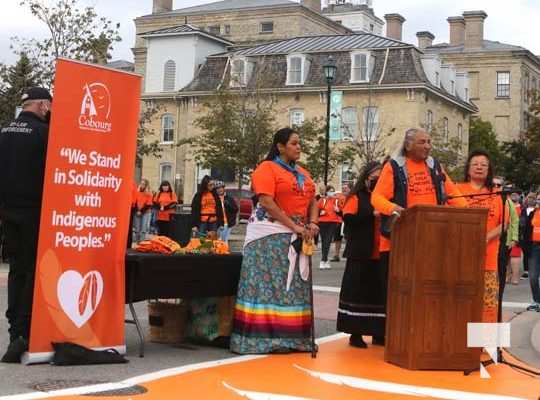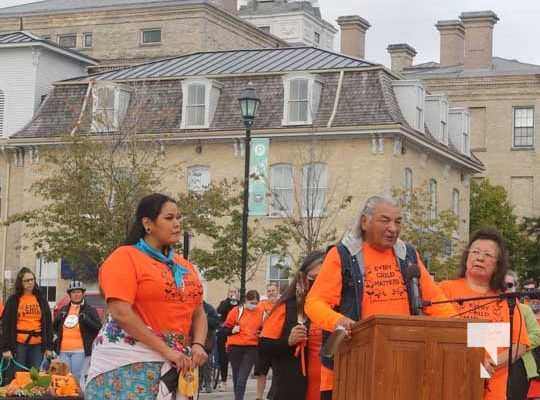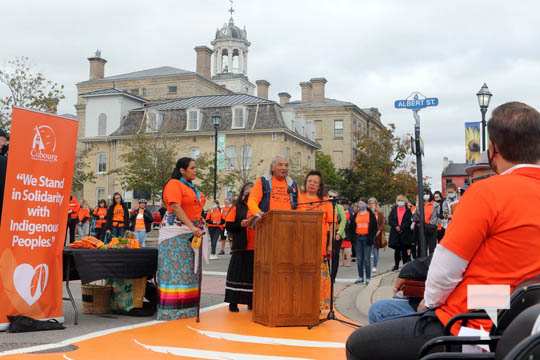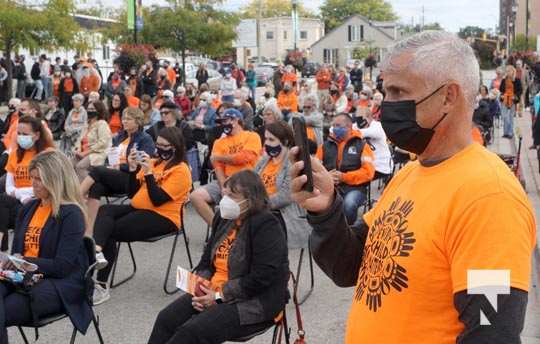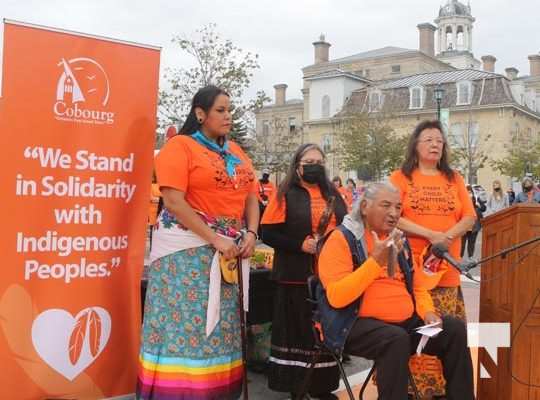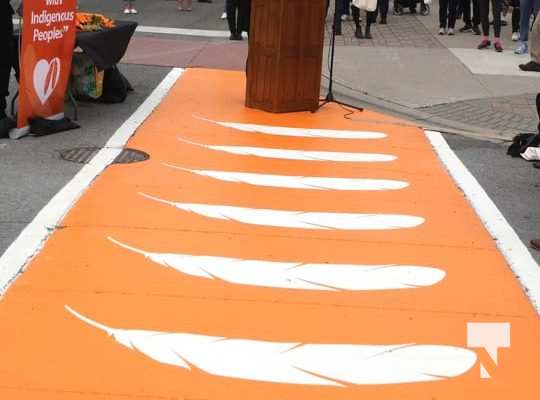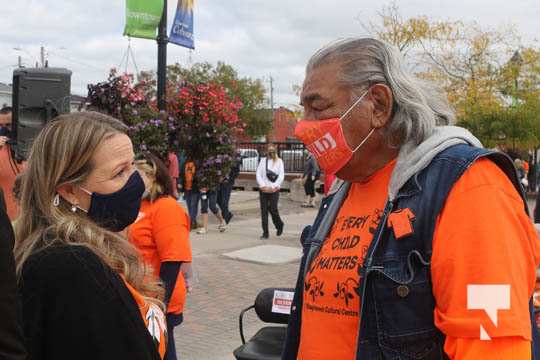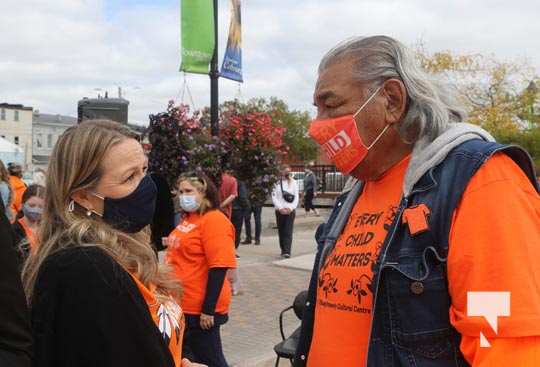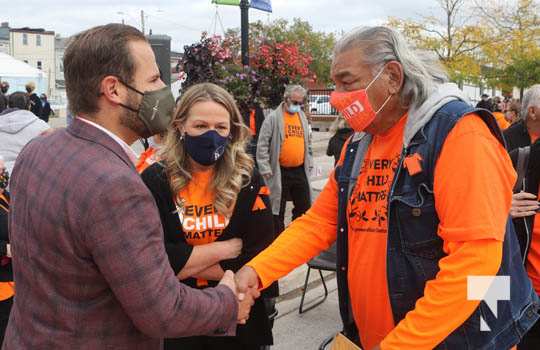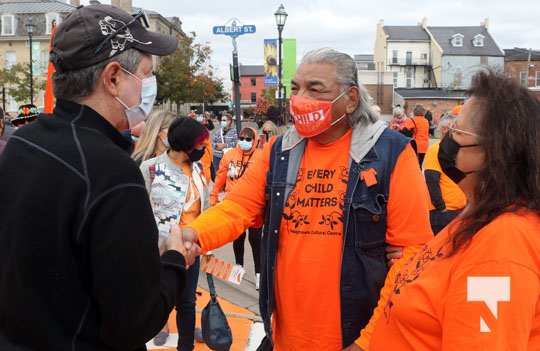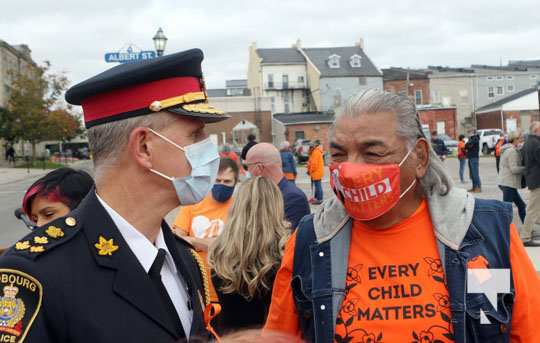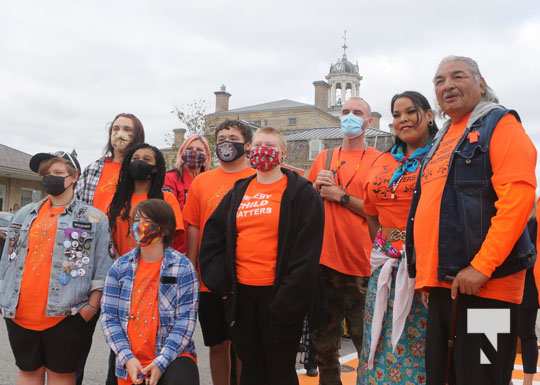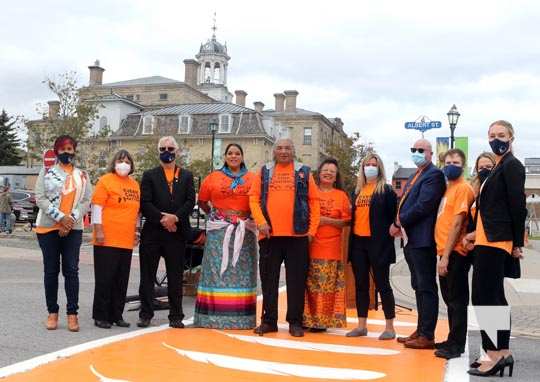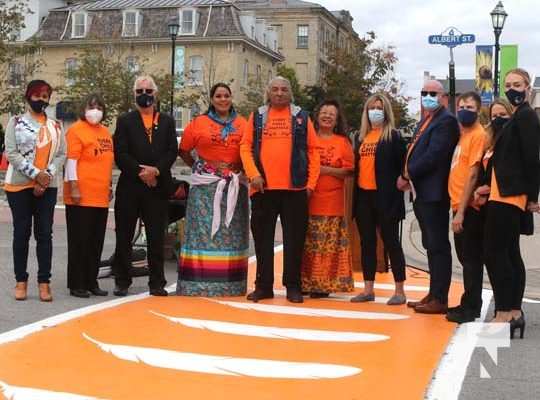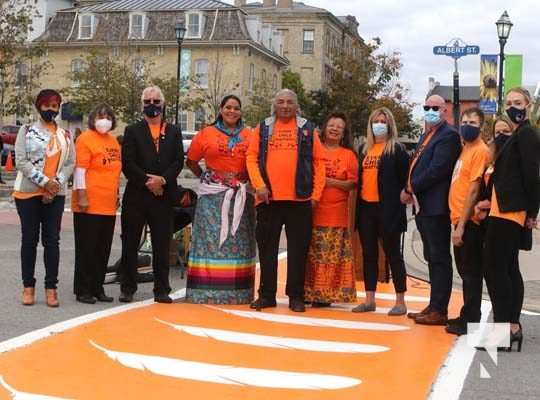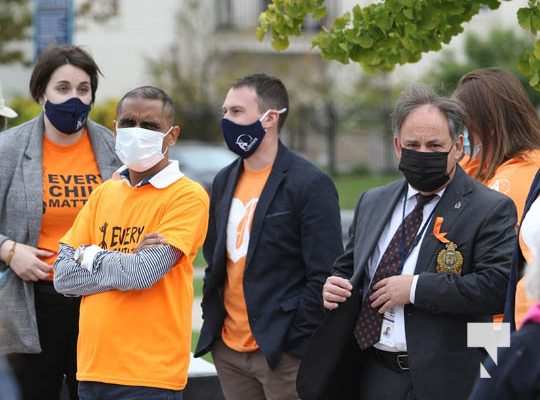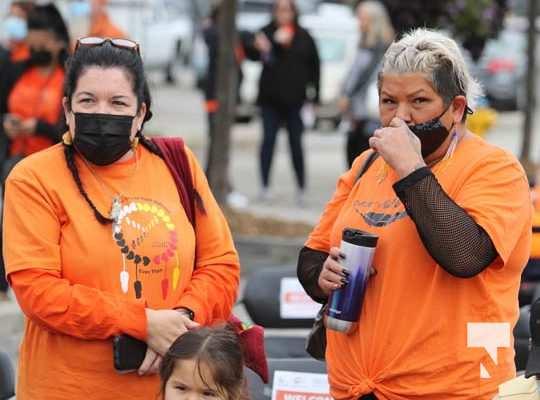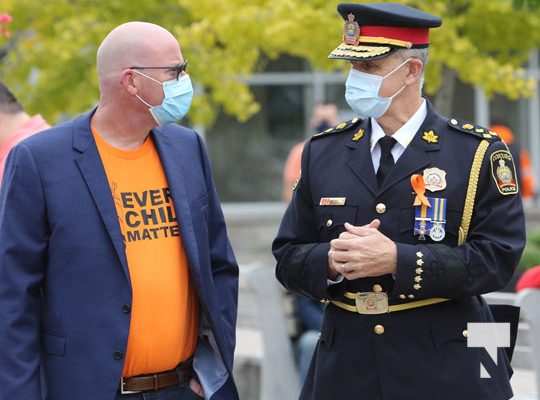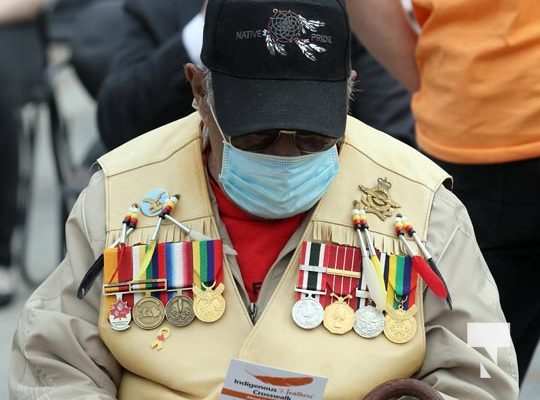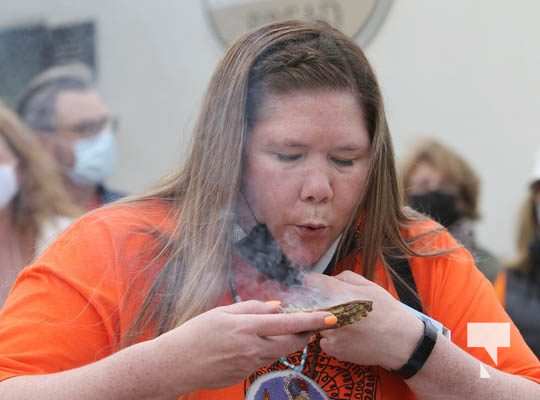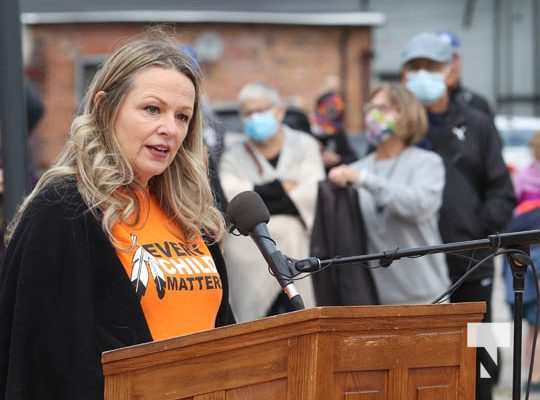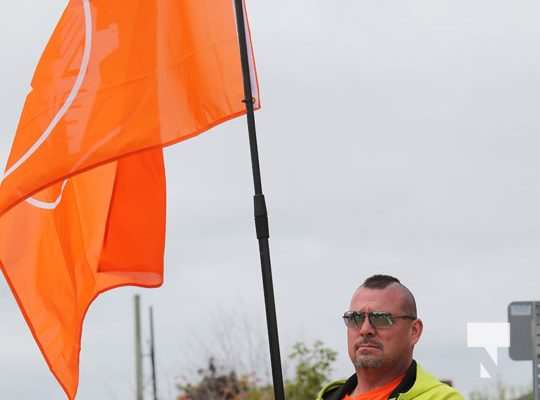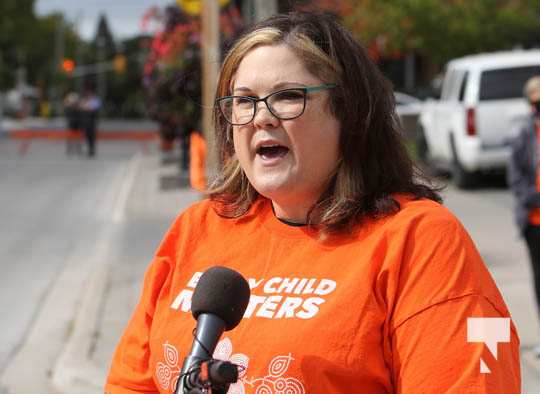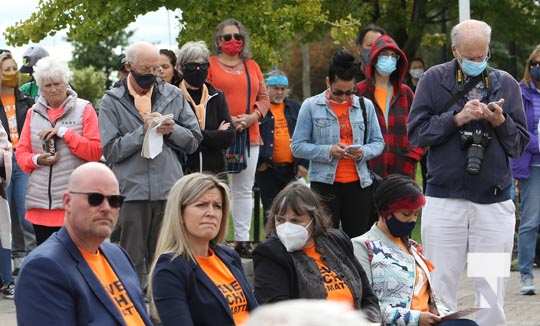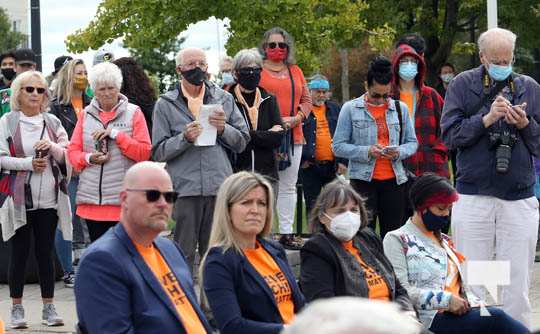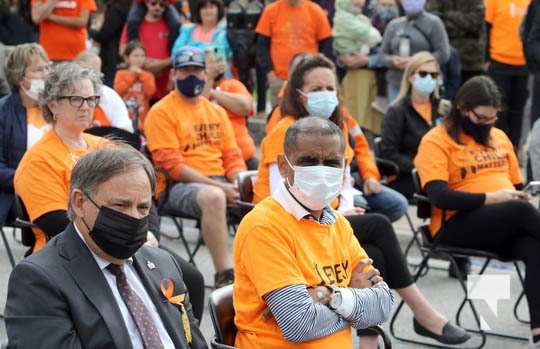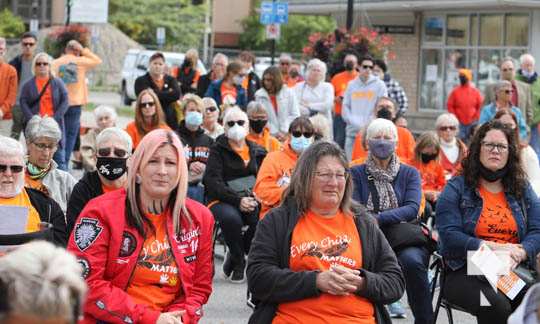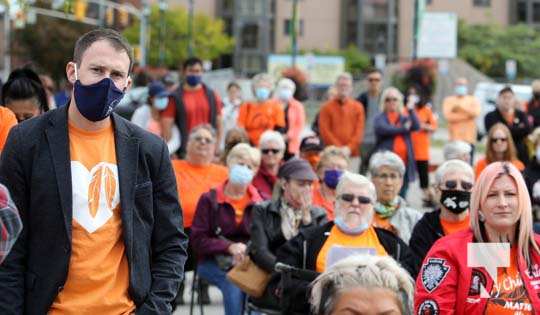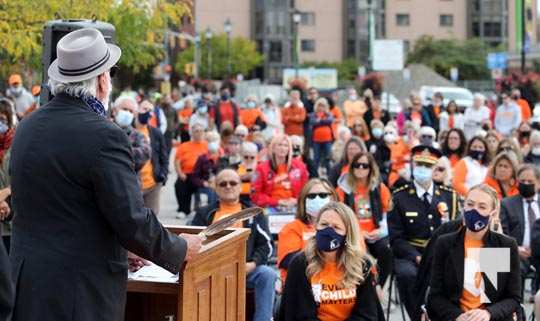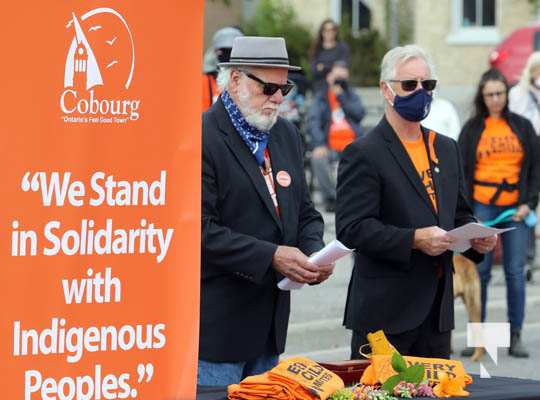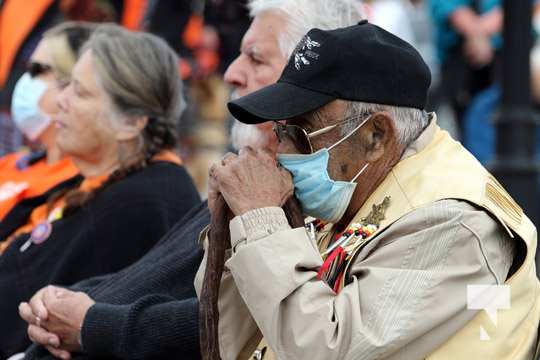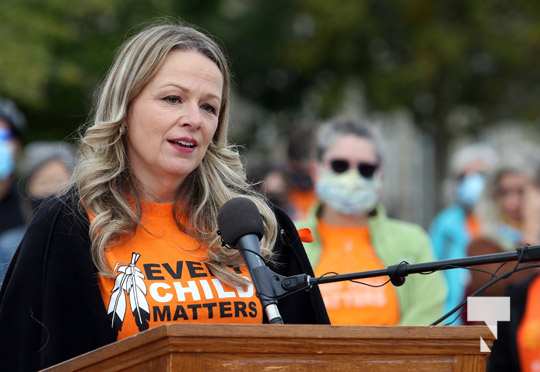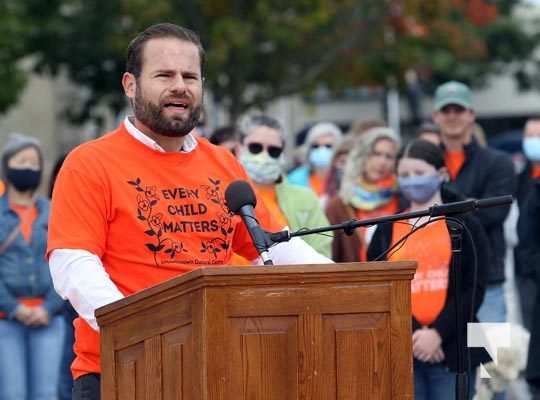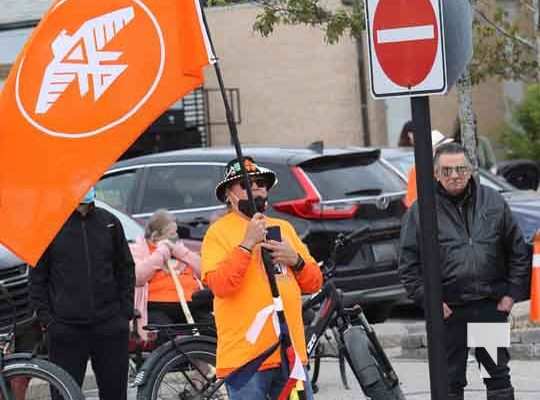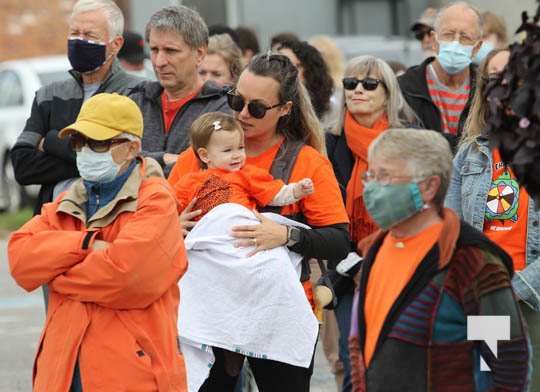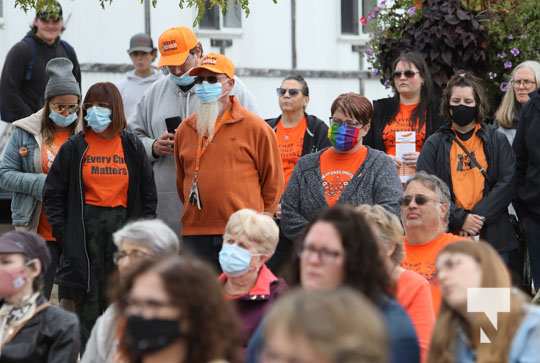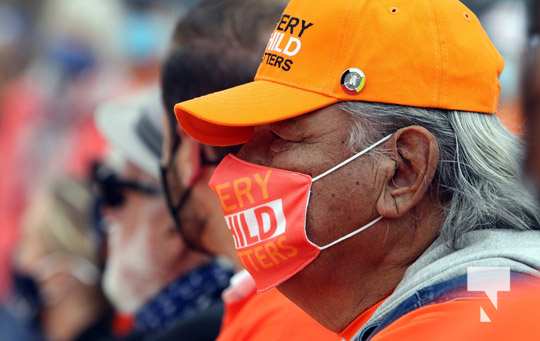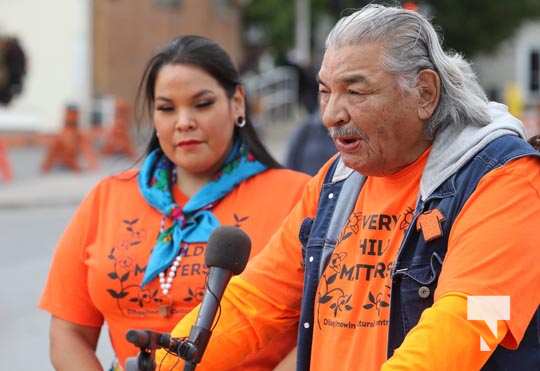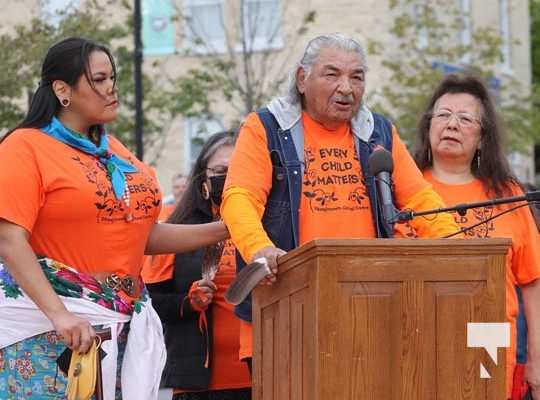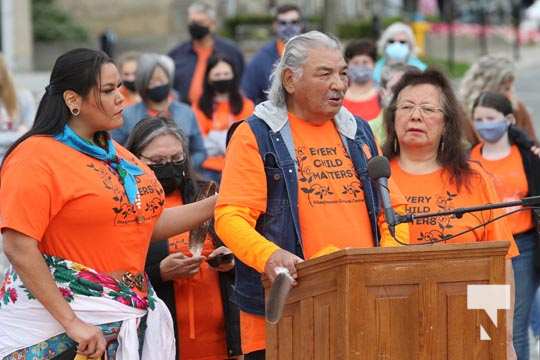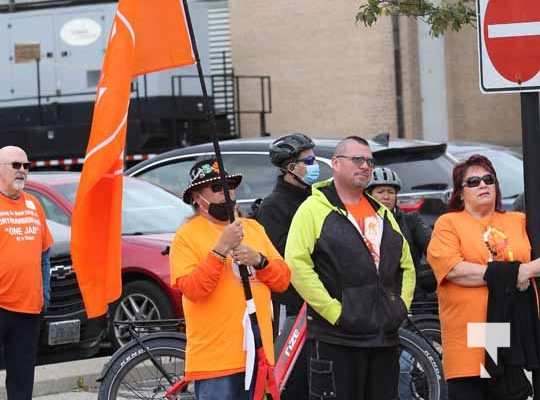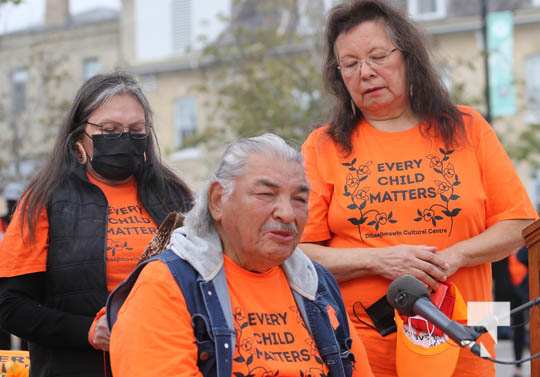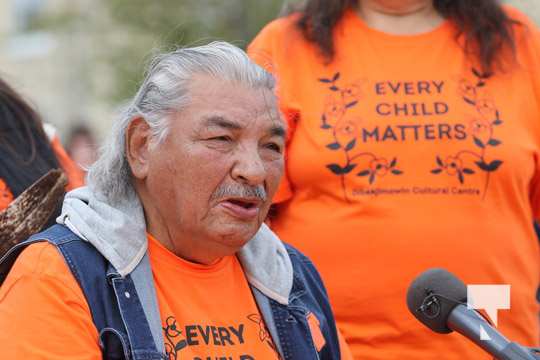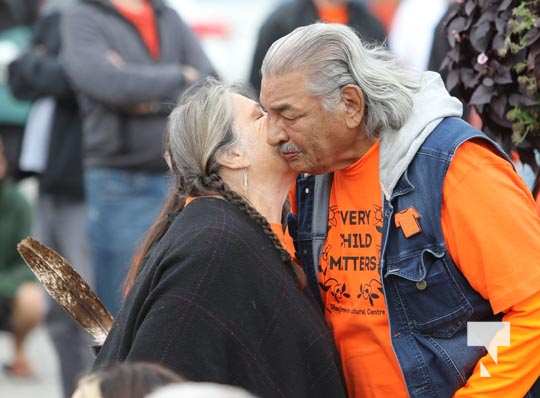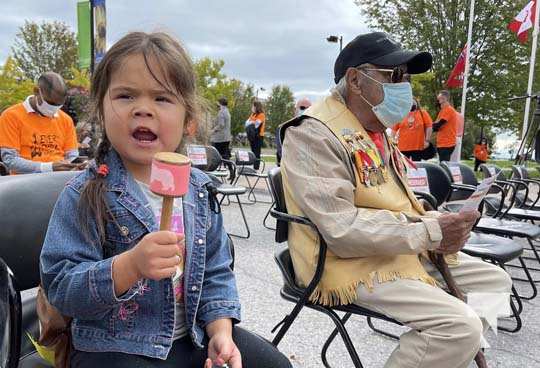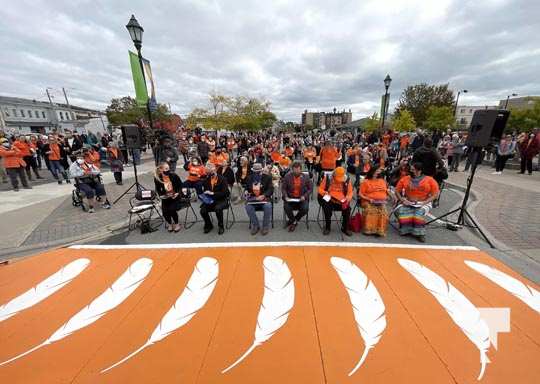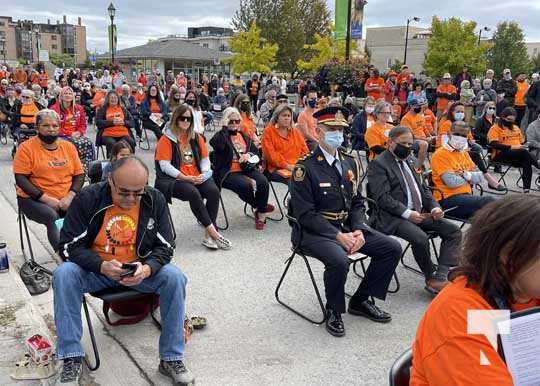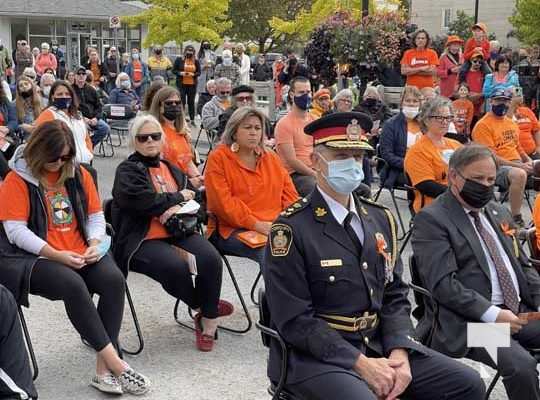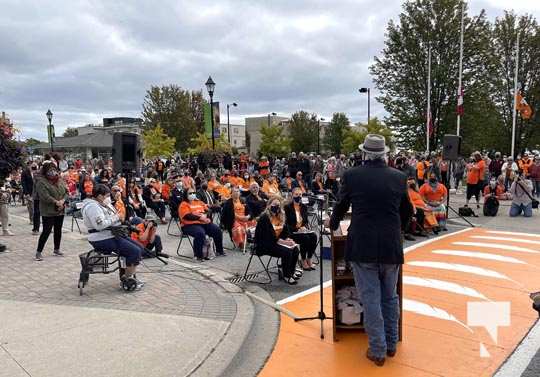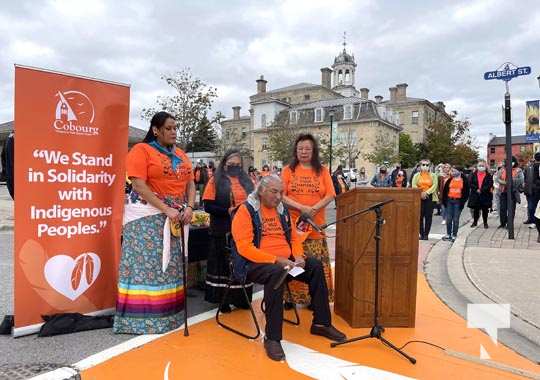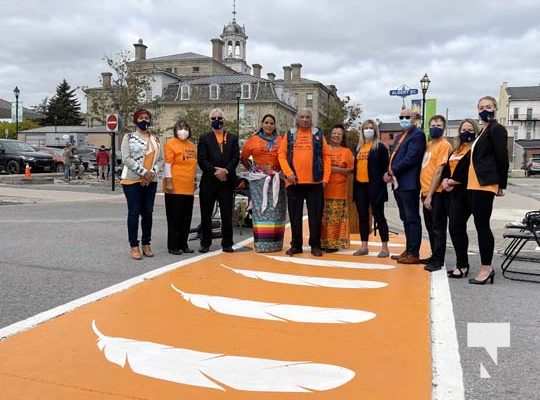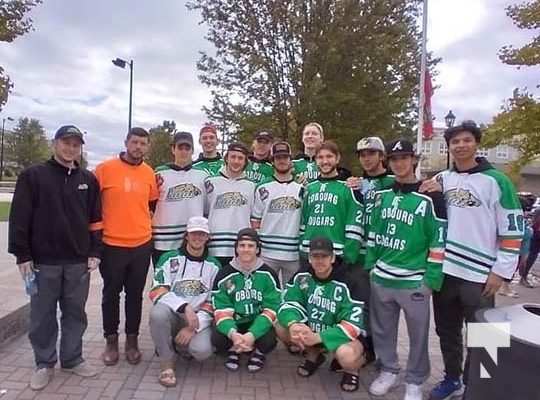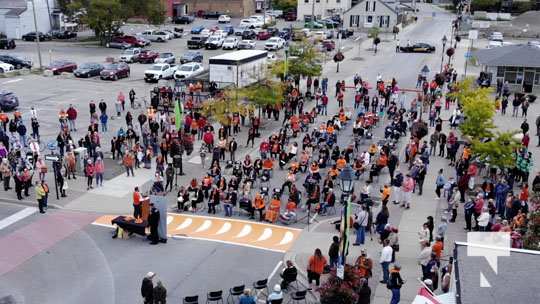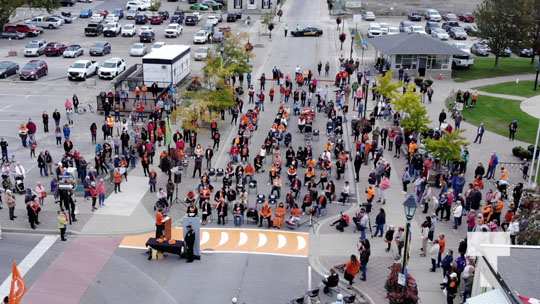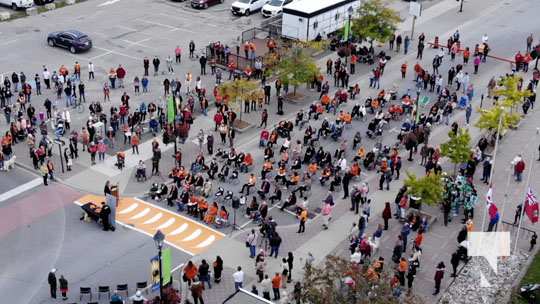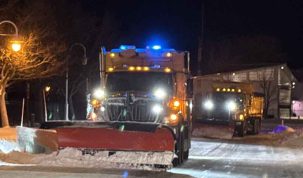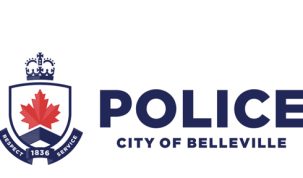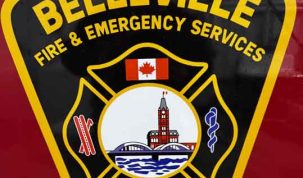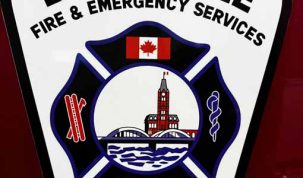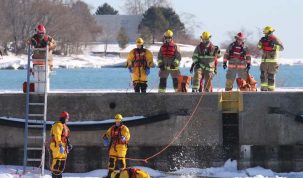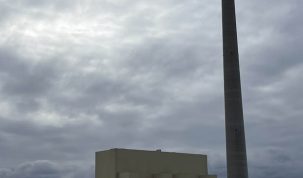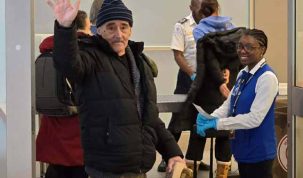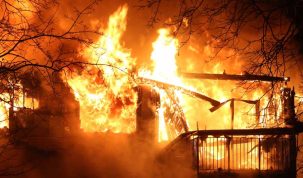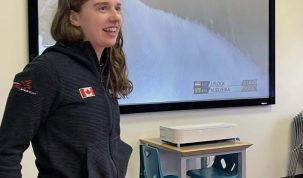By Cecilia Nasmith/Today’s Northumberland
A sea of orange surged at Albert and Second Street in Cobourg Thursday – at least a couple hundred people observing Orange Shirt Day (and the first-ever National Truth and Reconciliation Day) by attending the dedication of the Indigenous Seven Feathers Crosswalk.
On an orange background the seven feathers that lead from Second Street to the Rotary Waterfront Park represent the teachings of the Seven Grandfathers – love, respect, courage, honesty, humility, truth and wisdom. Mayor John Henderson said these seven virtues represent a moral compass and a reliable guide along life’s path.
Observances included a traditional smudging ceremony and the offering of tobacco – with sage, cedar and sweetgrass, one of the four sacred medicines.
There was also a poem from the town’s poet laureate Jessica Outram, a Metis writer and educator with the Kawartha Pine Ridge District School Board.
And the day’s standing ovation went to Elder Stephen Pashagumskum, a residential school survivor who – in spite of being a university graduate and a retired educator and entrepreneur – has difficulty speaking of his experiences even after decades of a successful life.
Cobourg’s Chief Administrative Officer Tracey Vaughan offered some biographical notes in her introduction.
Born on a trap line in northern Quebec, Pashagumskum was taken from his family and sent to residential schools in Quebec, Moose Factory and Sault Ste. Marie – all run by the Anglican church. His name was taken away and he was known as #47.
But he secretly maintained his knowledge of the Cree language and survived to return home to practice the traditional harvesting rights of hunting, fishing and trapping – and to earn degrees from Trent and Nipissing Universities.
Though reluctant to discuss details of the school, Pashagumskum did say he fought like hell when he and his brother were taken from their family.
“I don’t like to talk about those horrible experiences I had,” he said.
“Today we are supposed to celebrate – celebrate and commemorate the children that never made it. I knew some of them.”
He recalled childhood friends who seemed to disappear without explanation. Though he liked to think they had gone home, now he realizes there is a more likely explanation – he is haunted by the vision of a mother waiting behind a fence at an airstrip, waiting for her child to appear, and waiting in vain because the child is no longer with us.
On this day of Truth and Reconciliation, Pashagumskum said he is hoping for restoration.
“Restoration of our friendship. Restoration of believing in each other, not as a native person or a non-native person, but as a person in general.”
The speaker paused for a moment, asked if he might sit. When one of several offers of a chair was accepted and his microphone adjusted, he cited the definition of reconciliation from Canada’s Truth and Reconciliation Commission – maintaining a mutually respectful relationship between Aboriginal and non-Aboriginal people.
“We all must ensure that the truth and reconciliation extends to the next seven generations.”
It starts with education, he stated. The textbooks that don’t include this chapter must be changed.
Going forward, Pashagumskum expressed his hope that all who walk the path of life keep the virtues of the seven feathers uppermost – hold love in your heart for all you meet, treat them with respect, show courage, exhibit humility, practice honesty, tell the truth, value wisdom.
The elder’s address was preceded by one from Alderville First Nation Chief Dave Mowat.
“I commend Cobourg and the mayor and council for engaging in this important day and engaging in this important history around the residential school,” Mowat said.
“Today, here on this Truth and Reconciliation Day, Sept. 30, I hope this message reaches the public, because of the breadth of this historical issue and its past and present impact on Canada as a whole.”
A renowned historian, Mowat told the crowd that the residential-school system operated for 100 years, starting in the 1880s. But it is something that’s not always included in accounts of Canada’s history – and therefore not widely understood. He credits the tragic discovery of children’s remains at the site of a former Kamloops residential school in June for accelerating the conversation.
“It takes an open mind and willingness and acceptance of the general public that it was the rule of law that made it possible to impose this system,” he noted.
The British Imperial Government, with which the First Nations originally aligned themselves in 1764, led them to believe they would have the status of adopted children who (they were assured) would never be allowed to sink into poverty.
“Canada had the opportunity to honour this treaty relationship and chose not to,” Mowat said. Inevitably, First Nation peoples sank into poverty.
“We are now at the point of helping to engage with the people in order to help them better understand what occurred and why.
“At the end of the day, it’s about the lives of our precious children, and the common element is that all children matter – yours and mine,” he said.
“Our council has been working extremely diligently to build a bridge with Alderville First Nation and, in fact, all Indigenous communities,” Mayor Henderson stated, adding that he saw every single department in the town represented among the crowd.
Northumberland-Peterborough South MPP David Piccini stresed the importance of educating ourselves on this aspect of our nation’s history, recalling that Orange Shirt Day is in honour of the little six-year-old girl who received the gift of an orange shirt from her grandmother – it was taken away from her by the residential school and never seen again.
“We still have much, much more work to do. This is a painful scar on our nation’s history, a scar that will never go away, but we learn from the pain endured.
“It’s long past time for all Ontarians, all Canadians to acknowledge this dark stain on our nation’s history,” he said.
“As all of us reflect on what we can do individually and what we can do collectively, let’s unite around journey forward to create a better future. It won’t be done in one day, it won’t be done in one week. But if we use gatherings like today – and what a gathering it is – to spread awareness and open our minds and collectively work together, we will take this journey each and every day.”
Vaughan concluded the dedication, following Pashagumskum’s standing ovation.
“Reconciliation is not to forgive and forget, but to remember and to change. The truth and reconciliation commission has stated that reconciliation is a goal that will take a commitment of multiple generations. This requires public education and dialogue about our shared history and the legacy of the past and the impact felt today,” she said.
“Today is an opportunity for each Canadian to recognize the legacy and impact of residential schools and the mistakes of our past. Let us commit to moving forward and doing better.”


